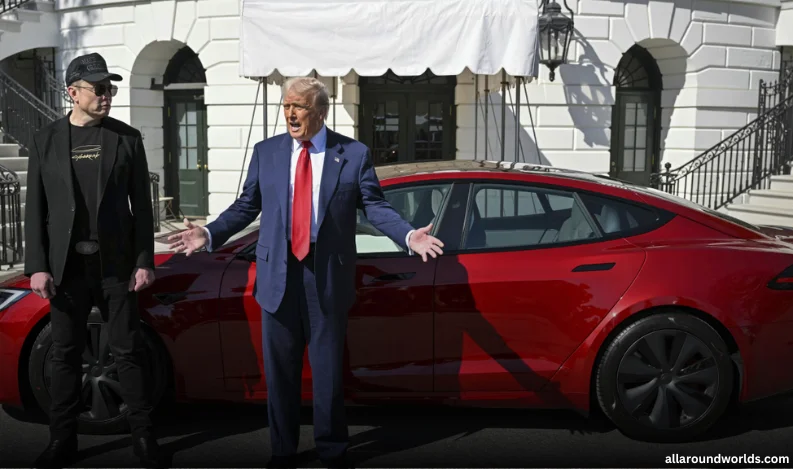
Musk Warns Tesla ‘Not Unscathed’ as Automakers Face U.S. Tariff Shock
The global auto industry is reeling from the U.S. government’s decision to impose a sweeping 25% tariff on foreign cars and auto parts, a move expected to disrupt supply chains and drive up consumer prices.
Investors responded swiftly, wiping billions off the market value of major automakers, with companies in Japan, Germany, and the U.K. among the hardest hit. In the U.S., General Motors saw a steep 7% drop, while Ford and Volkswagen also faced losses.
However, shares of Tesla remained steady, despite the electric vehicle giant sourcing a portion of its components from outside the U.S. CEO Elon Musk cautioned that the company is “not unscathed” by the new tariffs.
“The cost impact is not trivial,” Musk wrote on social media, warning that the policy would affect Tesla’s operations.
Industry Faces Rising Costs and Supply Chain Disruptions
According to analysts at Macquarie, the latest tariffs could impact $300 billion to $400 billion worth of imported car parts and vehicles—accounting for nearly 10% of all U.S. imports.
The financial strain is expected to be passed on to consumers, with prices for new vehicles projected to increase by $4,000 to $12,000, depending on the model and manufacturer.
“No vehicle is 100% U.S.-made,” said Patrick Masterson, a lead researcher at Cars.com, which ranks American-made vehicles. “The consumer is going to feel it across the board.”
Major Automakers Brace for Fallout
The tariffs pose a significant challenge for companies that rely on global supply chains to manufacture vehicles efficiently.
-
Toyota, which operates 10 manufacturing plants in the U.S., will be affected by its reliance on imported models like the Prius from Japan.
-
General Motors sources many components from Mexico and South Korea, while Volkswagen heavily depends on international supply networks.
-
Luxury brands like Mercedes-Benz, Audi, and Jaguar Land Rover—which manufacture fewer but high-priced vehicles—could face some of the steepest price hikes.
Luxury carmaker Ferrari has already responded by announcing a 10% price increase to offset the tariffs on its Italy-produced vehicles.
Some companies may shift production to U.S. facilities, according to Oxford Economics, but analysts warn that such moves could take years and lead to higher costs and significant production cuts in key trading nations.
U.S. Trade Policy Sparks Global Concerns
The tariff announcement is part of a broader push by the U.S. government to strengthen domestic manufacturing and reduce reliance on foreign imports.
The White House confirmed that:
-
The 25% auto import tax will take effect on April 3.
-
Tariffs on certain car parts will be phased in one month later.
-
Imports from Mexico and Canada will be temporarily exempt, allowing supply chains to adjust.
The exemption for North American parts was a relief to some in the industry, but analysts at JP Morgan estimate that General Motors alone could face additional costs of $10.5 billion, while Ford’s tariff bill could start at $2 billion, doubling over time.
“These tariffs will have an undeniable impact on the U.S. auto industry,” said Jennifer Safavian, president of Autos Drive America, a trade group representing international automakers.
With automakers weighing price hikes, production cuts, and potential model withdrawals from the U.S. market, industry experts warn that consumers could ultimately bear the brunt of the policy shift.



Recent Comments: